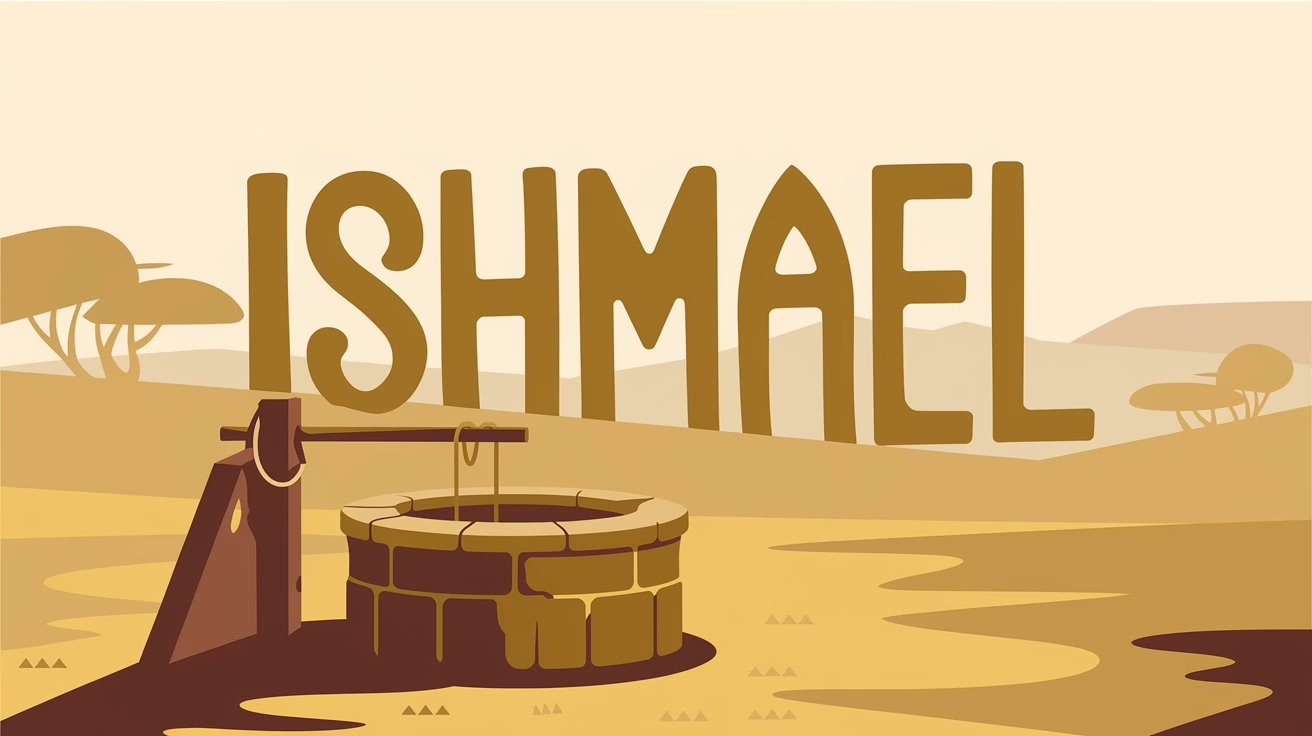The story of Ishmael is a powerful and sobering reminder of what happens when we take matters into our own hands instead of waiting on God. His life is a testament to God’s faithfulness, mercy, and provision—even when we walk outside of His perfect will. Ishmael’s life is woven through the book of Genesis, and though he was not the chosen son through whom God’s covenant would be established, his life was still marked by God’s promise and Abraham’s love.
The Conception of Ishmael: A Plan B Born of Impatience
In Genesis 15, we see God making a promise to Abram (later named Abraham) that his descendants would be as numerous as the stars (Genesis 15:5-6). But as time went on, and Sarah (Sarai) remained barren, impatience took root. Instead of trusting God’s timing, Sarah suggested a human solution: for Abram to conceive a child through her maidservant, Hagar. This was a common cultural practice at the time, but it was not God’s plan.
Genesis 16:1-2 (NKJV): “Now Sarai, Abram’s wife, had borne him no children. And she had an Egyptian maidservant whose name was Hagar. So Sarai said to Abram, ‘See now, the Lord has restrained me from bearing children. Please, go in to my maid; perhaps I shall obtain children by her.’ And Abram heeded the voice of Sarai.”
Ishmael was conceived in an act of human effort, born out of a lack of trust in God’s promise. Yet, despite the circumstances of his birth, God did not abandon Hagar or Ishmael.
God’s Mercy on Hagar and Ishmael
When Hagar realized she was pregnant, conflict arose between her and Sarah, leading to Hagar fleeing into the wilderness. There, an angel of the Lord found her and spoke a blessing over her unborn child.
Genesis 16:10-11 (NKJV): “Then the Angel of the Lord said to her, ‘I will multiply your descendants exceedingly, so that they shall not be counted for multitude.’ And the Angel of the Lord said to her: ‘Behold, you are with child, and you shall bear a son. You shall call his name Ishmael, because the Lord has heard your affliction.'”
The name Ishmael means “God hears.” Even though Ishmael was not the child of the covenant, God still had a plan and purpose for his life. This moment reveals God’s heart: He hears the cries of the afflicted and provides for those in distress.
Ishmael’s Relationship with Abraham
Though Ishmael was not the son of promise, Abraham loved him dearly. Abraham was 86 years old when Ishmael was born (Genesis 16:16). For thirteen years, Abraham cherished Ishmael as his only son. It wasn’t until God reiterated His covenant and declared that Sarah would bear a son named Isaac that the distinction became clear.
Genesis 17:18-19 (NKJV): “And Abraham said to God, ‘Oh, that Ishmael might live before You!’ Then God said: ‘No, Sarah your wife shall bear you a son, and you shall call his name Isaac; I will establish My covenant with him for an everlasting covenant, and with his descendants after him.'”
Abraham’s plea for Ishmael reveals his deep love for his firstborn. God did not dismiss Ishmael, but He made it clear that the covenant would be established through Isaac, the child born by God’s promise, not by human effort.
A Blessing for Ishmael
Even though Ishmael was not the chosen child through whom the covenant would continue, God made a specific promise to him. When Abraham expressed his concern for Ishmael, God responded with a blessing:
Genesis 17:20 (NKJV): “And as for Ishmael, I have heard you. Behold, I have blessed him, and will make him fruitful, and will multiply him exceedingly. He shall beget twelve princes, and I will make him a great nation.”
God’s blessing on Ishmael was significant. Ishmael would become the father of twelve princes, and his descendants would form a great nation. This shows that God’s mercy and blessings extend beyond our mistakes and that He can bring good even out of our missteps.
The Separation of Ishmael and Isaac
In Genesis 21, Isaac was born, fulfilling God’s promise to Abraham and Sarah. However, tension rose between Hagar and Sarah once again. At Sarah’s request, and with God’s confirmation, Abraham sent Hagar and Ishmael away. This must have been heart-wrenching for Abraham, but it was necessary for God’s plan to unfold.
Genesis 21:14 (NKJV): “So Abraham rose early in the morning, and took bread and a skin of water; and putting it on her shoulder, he gave it and the boy to Hagar, and sent her away. Then she departed and wandered in the wilderness of Beersheba.”
In the wilderness, God once again showed His mercy. When the water ran out and Hagar despaired, God heard the cry of Ishmael and provided a well of water for them.
Genesis 21:17-19 (NKJV): “And God heard the voice of the lad. Then the angel of God called to Hagar out of heaven, and said to her, ‘What ails you, Hagar? Fear not, for God has heard the voice of the lad where he is. Arise, lift up the lad and hold him with your hand, for I will make him a great nation.’ Then God opened her eyes, and she saw a well of water; and she went and filled the skin with water and gave the lad a drink.”
A Legacy of Wells and Nations
Ishmael grew up in the wilderness of Paran and became an archer. His life and legacy were not forgotten by Abraham. In Genesis 25:9-10, we see that Ishmael and Isaac came together to bury their father, indicating a lasting bond despite their separation.
Ishmael’s descendants, the Ishmaelites, went on to form powerful tribes, fulfilling God’s promise. His life reminds us of the complexity of human relationships and the consequences of stepping outside of God’s plan, yet also of God’s incredible faithfulness and mercy.
My Final Thoughts
The story of Ishmael teaches us about the importance of trusting God’s promises and timing. It also shows us that God hears the cries of those who are cast aside and provides for them. Ishmael may not have been the chosen son of the covenant, but he was not abandoned by God. Instead, he was blessed and given a legacy of his own.
In our own lives, we can take comfort in knowing that even when we make mistakes or take detours from God’s plan, His mercy endures. He hears us, just as He heard Ishmael. He sees us in our distress and provides wells of living water when we need it most.




